“How dare you ask me about some animal, can you not see that the world is crumbling apart? I’ve lost my family while you’re concerned about some dog.” A dialogue I feared hearing, yet I did…
I stood facing the hill in a small hamlet named Kavalappara in the Malappuram district of Kerala. Heavy rains caused an unprecedented geological disturbance, leading to a landslide that washed away over 50 houses on this hill. The atmosphere was grim, in weather as well as in spirit. I had never seen so much dirt in my life. It was everywhere, the roads, the houses, the trees. This was my first visit to a disaster site, and as much as I loved my job, I knew this time it would be different. This time I would have to be covert about my cause.
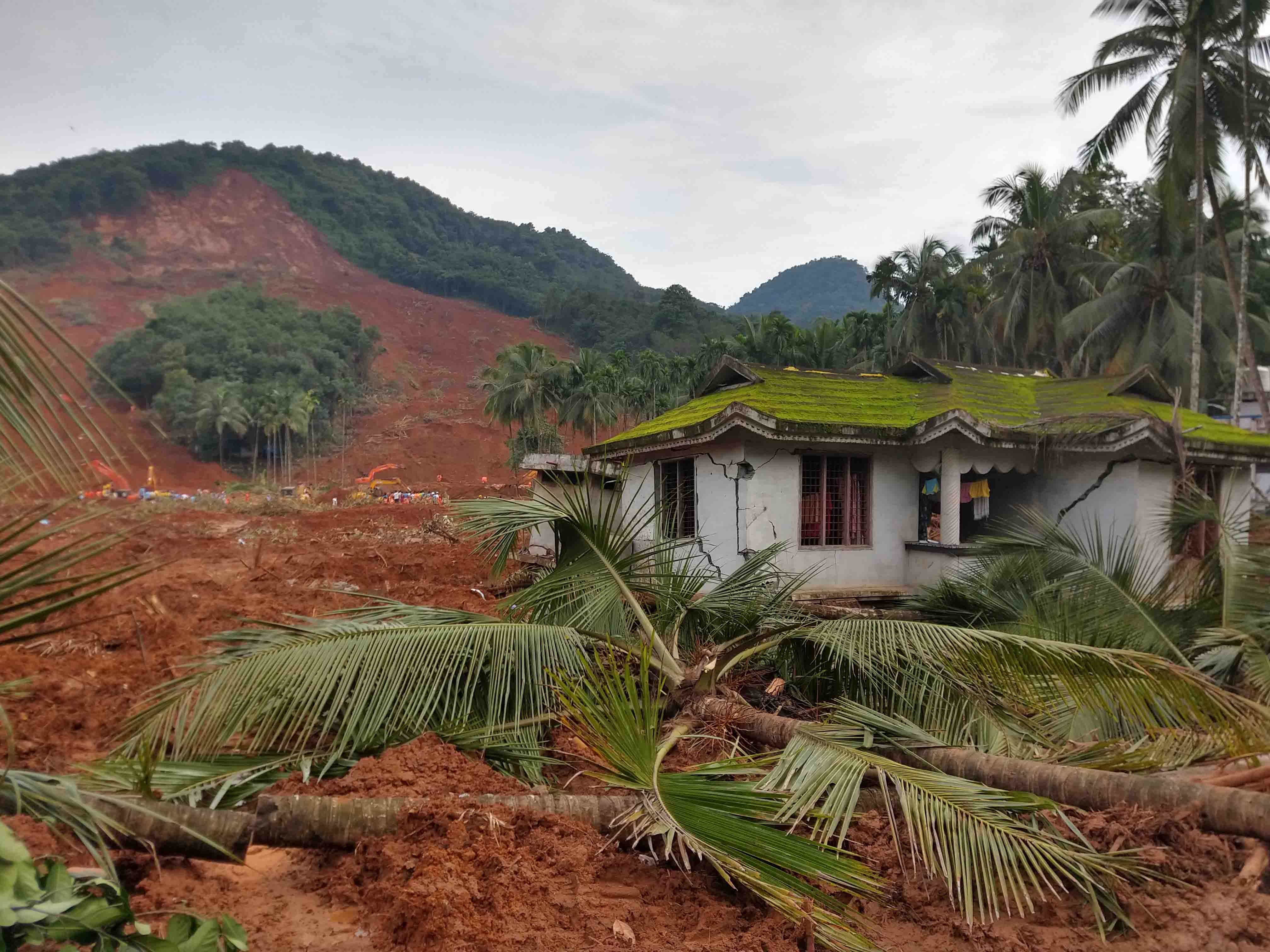
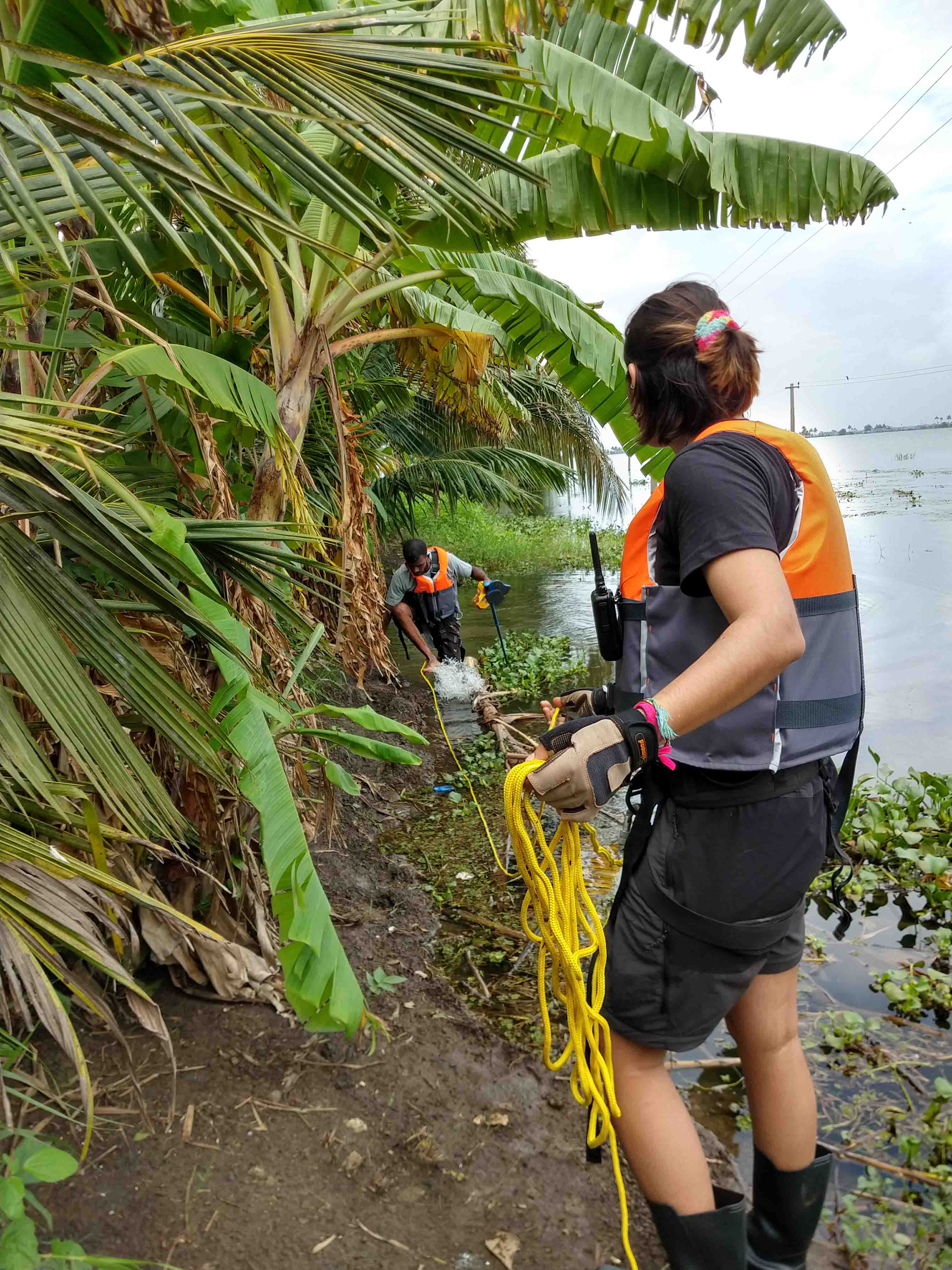
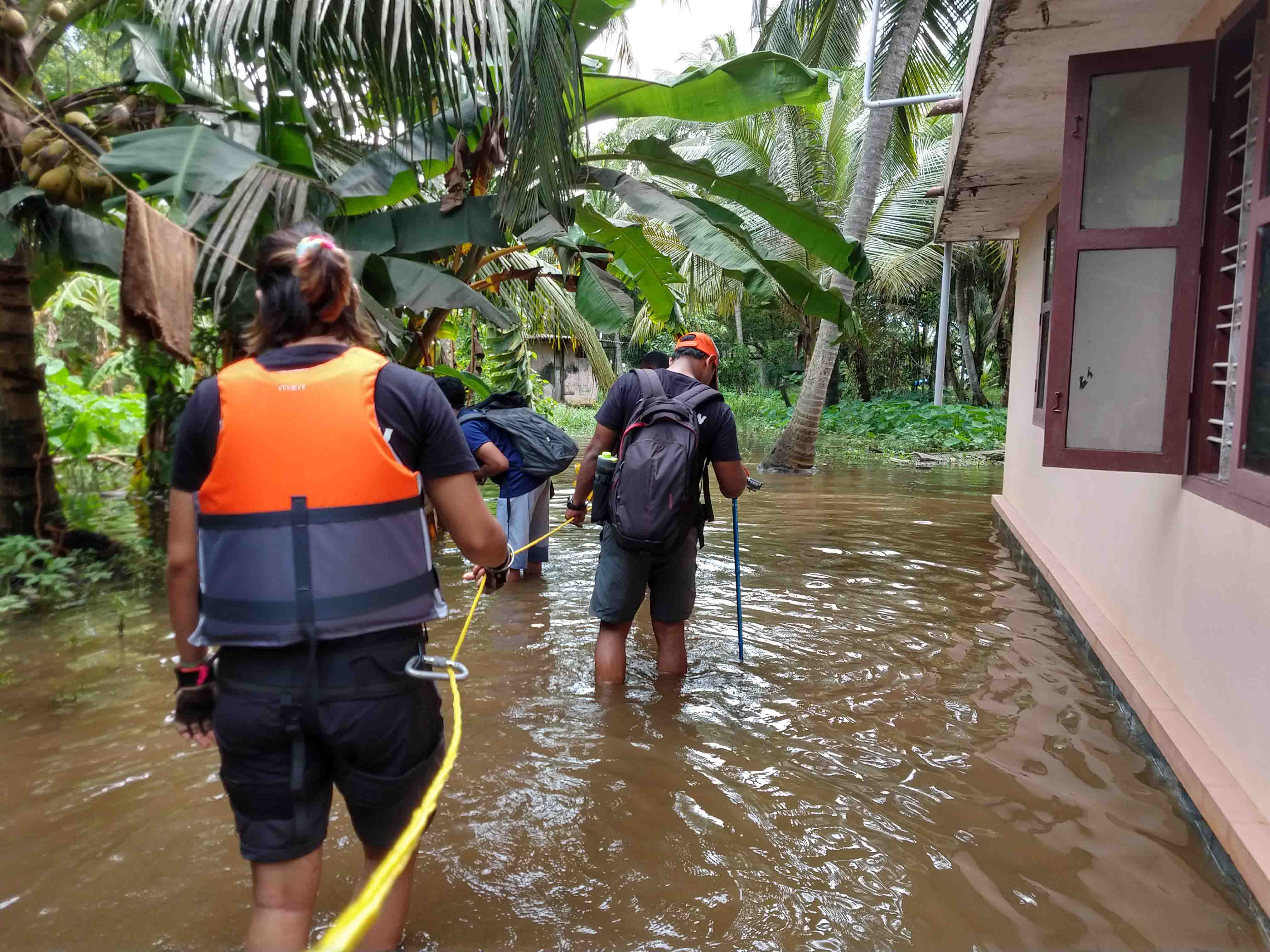
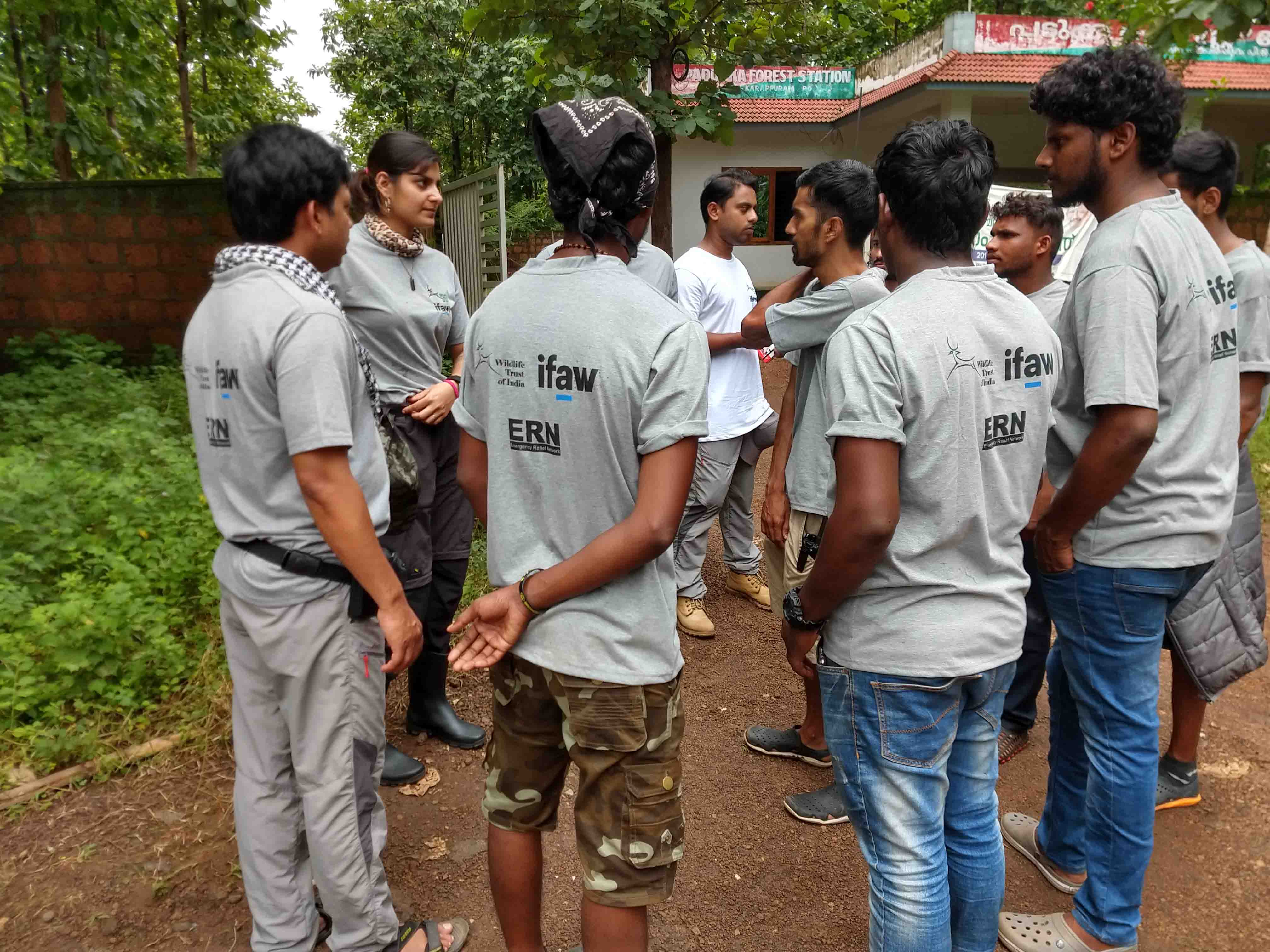
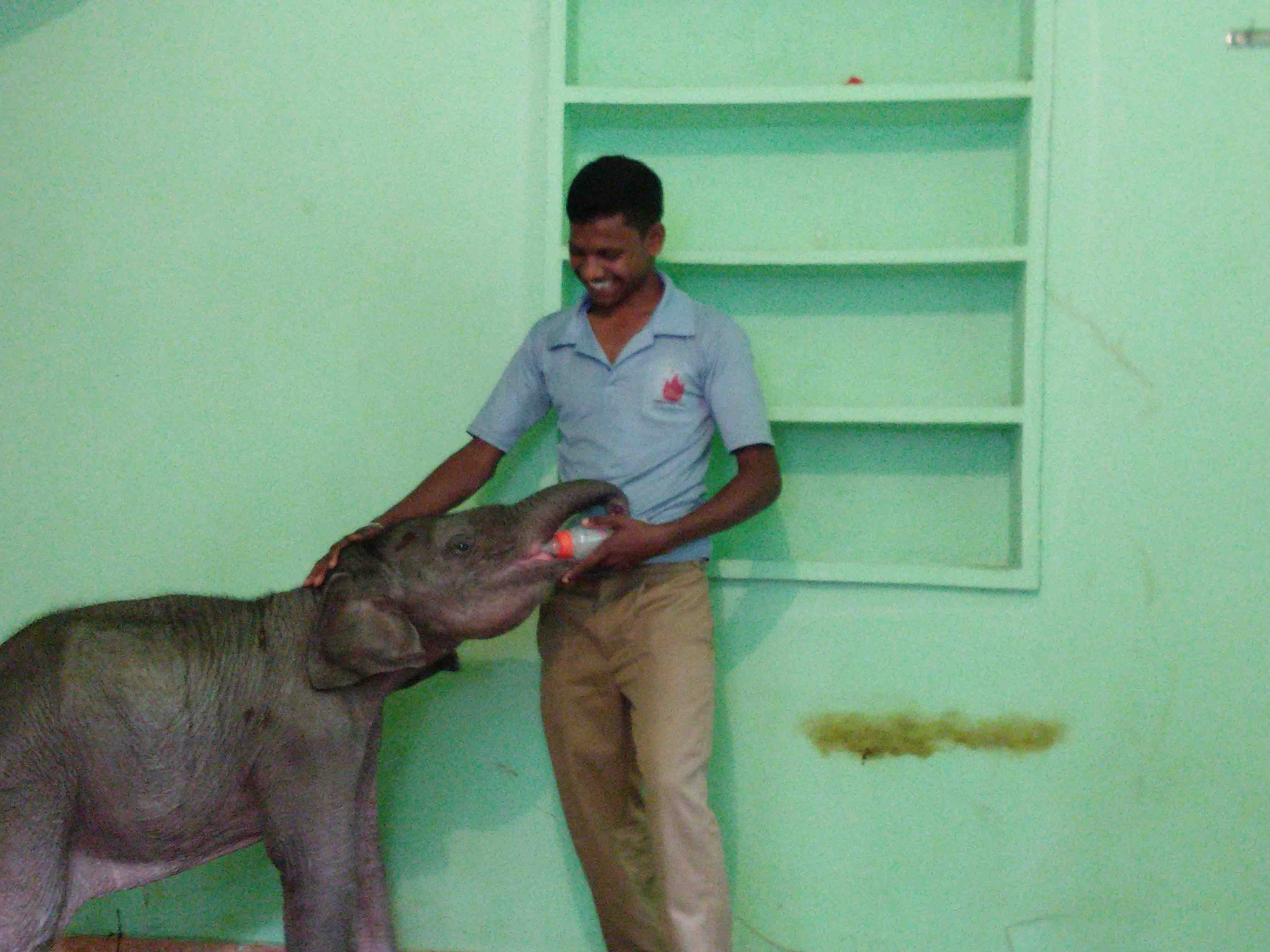
Rewinding back to a few days ago, I was preparing for my climbing trip in the Spiti valley. I had spent the preceding weeks undergoing heavy training to be prepared for what was to come. Climbing in the mountains was no easy task, it came with its own baggage. Apart from physical training, there were factors beyond one’s control that could affect the trip: cloud-bursts, altitude-sickness, getting stranded, and these were just a few. However, a call on the night of 13th August rewrote my stars and determined the course of events over the next few days.
As my boss asked me to go for the flood response in Kerala, a whirlwind of thoughts occupied my mind. A disaster response was not so different from climbing, I thought. It required physical fitness, technical training and a mind prepared to face the unknown all of which I had already imbibed from the climbing routine. With a strong resolve, I boarded my fight to Kochi the next day and joined a lively bunch of colleagues. Rudra, Sethu, and I soon headed towards Allepey, our first site for the response.
The villagers in the backwaters near the town were well acquainted with the floods. On interaction with the locals, I found out that floods were an annual occurrence in certain villages. Each house had a boat to commute as the villages were connected to the mainland through channels. The locals dealt with such challenges head-on on a daily basis.
While searching the highlands, we encountered some pets that were left behind due to the hurried evacuation. Like most of you, I had never entered infested flood water before. I was informed that the water would surely have proportions of sewage, leeches, snakes and other unknown dangers that I refused to think about. But I also knew it was the only way to reach the animals and provide relief. With nerves of steel, my teammates and I walked from house to house in the knee-deep waters to provide aid to creatures affected by this flood. In collaboration with the NGO called Hands for Paws we rescued some dogs, provided food, medicines and fodder for the livestock and pets in these villages.
Being a part of the Emergency Relief Network (ERN) came with grave responsibility. It meant more than just rescuing animals. It meant doing the right things the right way, i.e, following best practices. Although ERN exemplified this, witnessing it at a larger scale in the disaster-hit district of Mallapuram was beyond phenomenal. When the ERN team arrived in the region, the National Disaster Response Force (NDRF) along with multiple other organisations had already been working tirelessly to help the villages with food, water and other relief materials. Apart from that, an enormous amount of manpower and machinery was deployed to help in the retrieval of the buried bodies. We took the decision to keep a low profile, assist any animal we saw in distress and leave. In collaboration with the NGO called Animal Warriors, we assisted the Padukka Forest Department in the reunion of an elephant calf which had separated from its herd possibly due to the landslides and heavy rain. However, despite arduous efforts, the reunion was unsuccessful. The baby elephant is currently being hand-raised by the Kerala Forest Department in the hopes that her future rests in the forests.
The task of providing assistance in the region was similar to walking a tight rope. There was an underlying fear that people may be offended that there is an organisation to help animals when human lives have been lost.
As I see it, all beings are born equal. Life originates from the soil and ends within it, then why are we Homo sapiens so insecure about homogeneity?
About the author: If not found in your nearest climbing gym, Aradhana Singh will be scaling the Himalayas or diving to the depths of the ocean in search of all that remains wild. Contact her at po.wildrescue@wti.org.in